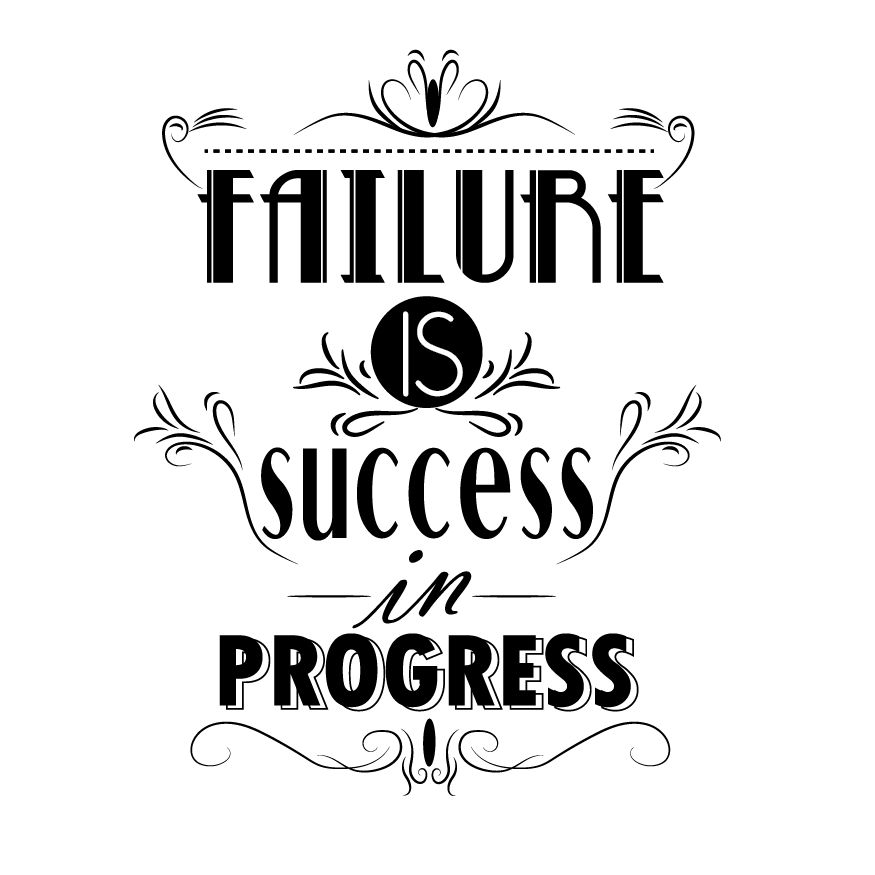I used to not believe in failure primarily because of how the word was defined and applied and ALL the emotions that surround this word. Now I think I’ve gain a different perspective and understanding on how the word should be defined and applied. Failure really isn’t only defined by the level (or lack) of successfully attaining a particular goal – though part. Nor can it be applied to someone or something else (the scapegoat never has a chance). Resolution should be the first order of business… not the last.
First, we’re not in the business of judging others (on their level of attainment) and second – was there something that should have been done prior to attempting to accomplish (fill in the blank)? What part, if any, do we play in the overall assessment of failure? If we are totally ‘hands off’ and are only observing – does this mean that we can’t become part of the solution?
‘Failure’ is often subject to so many variables that assigning blame is difficult (and really… why should this be the focus other than learning from the situation). This brings up my first point: blame. Too often blame is an attempt to shift any fault away from self. That typically requires sooo much energy and distortion that finding the cause is thwarted. Understandable or not, cause and blame should never be used in the same breath. Besides, the focus should be on resolution. Errors should be treated as learning points. Unless the action was deliberately and purposely deceitful, don’t accent the wrong sy-llable.
My second point is that what is accomplished in terms of resolution when the focus is on everything else: blaming or feeling sad/frustrated/etc. that the goal wasn’t attained? Sooo… the point should be that given the goal wasn’t met, what should be done now? Is the goal still attainable? Was it ever? If it isn’t attainable, what could become the next step? Are you prepared? Do you have everything necessary to ensure success? The questions should lead to answers which should lead to movement.
Scripture speaks to failure many times and in many ways. If you feel you are or about to fail, or you are in the midst of failure, etc. I would like to forcefully inform you that you DO have a foundation to speak to failure: Isaiah 41;10, James 1:2-4. Jeramiah 29:11, Proverbs 3:5-6, Psalms 73:26, 2 Timothy 1:7, and Philippians 4:6, 13. Though this is only a smattering of scriptures about failure – they cover just about every type of failure we face: personal, spiritual, relational, ‘professional’. But don’t just read them – make them part of your own spiritual weapons to fight against our real enemy.
It’s inevitable that we will face failure but HOW we face it is the answer to how long and how bad. Encourage others with those scriptures because you can be a great support for those who have recognized their failing but don’t seem to know what to do next. With every obstacle we face, our first offense should be the Word and how it speaks to the situation.
Failure is actually fleeting (unless it’s a catastrophic one) except in our minds. Many of us are plagued and then fear enters to stop us from living. Unless your intention was to fail in the first place, grant yourself some grace, talk with the Lord, make what amends need to be done – and keep on movin’. Failure is an event not a lifestyle or personal definition. Actually… if you fail at (fill in the blank) this tells you this isn’t the right approach and now allows you to assess what might be – could end up being a win-win.







